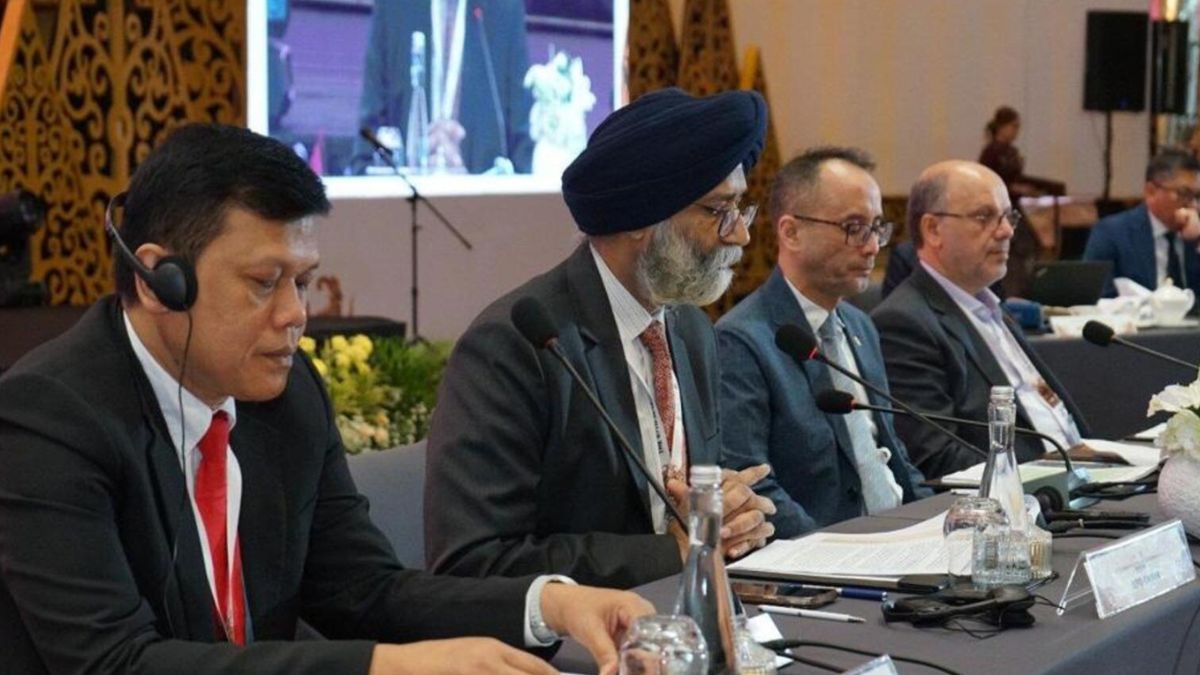- Courses
- GS Full Course 1 Year
- GS Full Course 2 Year
- GS Full Course 3 Year
- GS Full Course Till Selection
- MEP (Mains Enrichment Programme) Data, Facts
- Essay Target – 150+ Marks
- Online Program
- GS Recorded Course
- NCERT- First Ladder
- Polity
- Geography
- Economy
- Ancient, Medieval and Art & Culture AMAC
- Modern India, Post Independence & World History
- Environment
- Governance
- Science & Technology
- International Relations and Internal Security
- Disaster Management
- Ethics
- Current Affairs
- Indian Society and Social Issue
- CSAT
- 5 LAYERED ARJUNA Mentorship
- Public Administration Optional
- ABOUT US
- OUR TOPPERS
- TEST SERIES
- FREE STUDY MATERIAL
- VIDEOS
- CONTACT US
India Assumes Chairmanship of Asian Productivity Organisation (APO) – 2025-26
India Assumes Chairmanship of Asian Productivity Organisation (APO) – 2025-26
26-05-2025

- India has formally assumed the Chairmanship of APO for 2025–26 during the ongoing 67th Session of the Governing Body Meeting (GBM) of the APO, being held from 20–22 May 2025 in Jakarta, Indonesia.
- India reaffirmed its commitment to the APO Vision 2030 and expansion of the Green Productivity 2.0 framework.
- Emphasis was laid on regional cooperation for:
- Digital transformation
- Sustainability
- Innovation
- Entrepreneurship
- India aims to support inclusive, responsive, and results-driven APO programs for the Asia-Pacific region.
India’s Contributions to APO :
- Over 100 Indian professionals participate annually in APO-led capacity-building programs, coordinated by the National Productivity Council (NPC) under DPIIT.
- These initiatives benefit industry, services, and agriculture sectors.
- India has implemented Green Productivity and Industry 4.0 demonstration projects for MSMEs across the country.
About Asian Productivity Organisation (APO) :
- Established: 1961
- HQ: Tokyo, Japan
- Type: Intergovernmental, non-political, non-profit, non-discriminatory organisation
- Objective: Enhance productivity and economic development in Asia through mutual cooperation.
Membership
- Open to countries in UN ESCAP region.
- The UN ESCAP region is a wide area, including countries in Asia and the Pacific.
- Some examples of ESCAP member states include China, India, Japan, Australia, Indonesia, and many others, according to the UN ESCAP website.
- 21 Member Countries: Bangladesh, Cambodia, China, Taiwan, Fiji, India, Indonesia, Iran, Japan, Korea, Laos, Malaysia, Mongolia, Nepal, Pakistan, Philippines, Singapore, Sri Lanka, Thailand, Turkiye, Vietnam.
Functioning & Structure
- Works through National Productivity Organisations (NPOs) in member states.
- NPOs implement APO projects and nominate participants.
- Activities:
- Training and capacity-building
- Promotion of productivity techniques
- Research and advisory support
- Focus Sectors: Agriculture, Industry, and Services.
- Governing Body:
- Highest decision-making authority
- Meets annually to decide on policy, budget, and membership
|
Also Read |
|
| FREE NIOS Books | |




